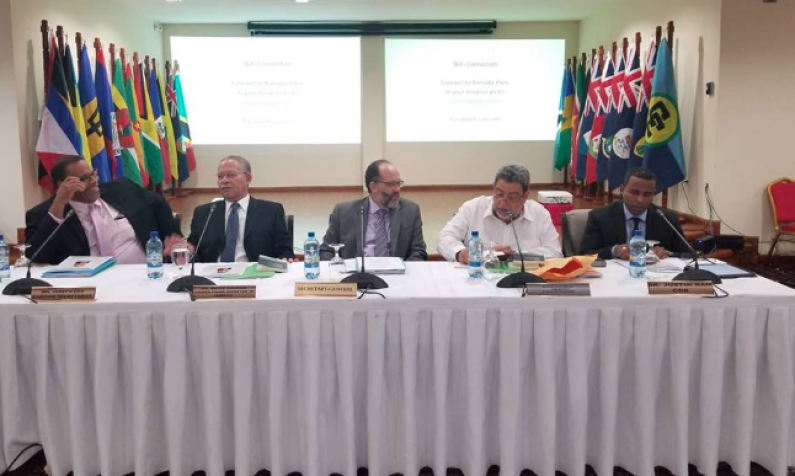
Hope is fading among regional leaders when it comes to the full implementation of all elements of the CARICOM Single Market Economy (CSME). Some CARICOM leaders believe the realization of the CSME’s full potential will not be accomplished in the foreseeable future.
That is the contention of Prime Minister of St Vincent and the Grenadines, Dr. Ralph Gonsalves who joined other regional leaders in Georgetown on Friday for a two-day Stakeholder Consultation on advancing the CSME.
Dr. Gonsalves said he is not so sure that the single economy issues will be resolved in the foreseeable future or even in his lifetime.
He has prescribed, however, that the time has come for the region to keep many of its plans as simply aspiration and start to do as many practical things as possible.
Mr. Gonsalves said he doesn’t believe the region can move towards a single economy because of the nature of respective economies and the uneven stages of development.
The PM pointed out that the way CARICOM is currently constructed, the region cannot move to deeper integration if it remains so unequally yoked.
“… and those who have a greater advantage in integration movement they need to appreciate that and lessen the extent of unequal yoking,” he said.
Dr. Gonsalves who is currently serving his fourth term as Prime Minister, amounting to 17 years as a Regional Head of Government, concluded that there’s much more still to be done on the single market phase of the CSME.
He said there is a need for much more to also be done with respect to the other areas of the integration movement.
Calling for among other things, a revamping of governance structures and an amendment to the Revised Treaty of Chaguaramas, Dr. Gonsalves comments found favor with several other persons gathered in the room including CARICOM Secretary-General, Ambassador Irwin LaRoque.
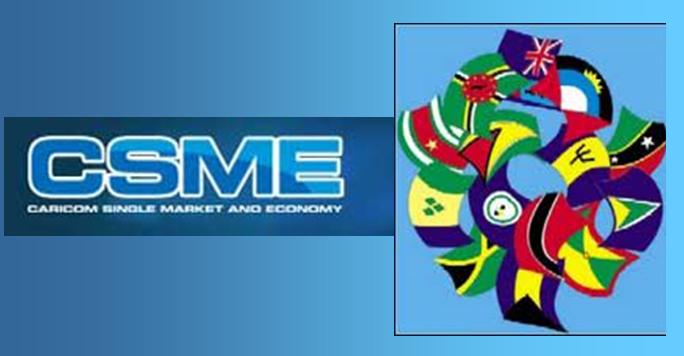
LaRoque agreed too that there was “so much more to get done.”
He said the framework for CSME has long been in place but there have not done much work on elements of the single economy.
He said to journey to its realization still requires commitment from all stakeholders.
“We take too long to get things done in the community,” LaRoque said pointing out that matters which commenced in 2005 are still outstanding.
The Secretary General said the challenge now is to understand why it takes so long to get things done, while telling those gathered for the stakeholder consultation at the Ramada Hotel, not to bring to the table their national positions on the issues but try to arrive at a regional position.
He said that there was a need to move the agenda along faster. “The time it takes to get things done is a cost in terms of credibility to the community at large… its either get it done or move onto to something else.”
LaRoque is hopeful that there will be concrete recommendations to put to Foreign Ministers and Head of Governments when they meet in the coming weeks






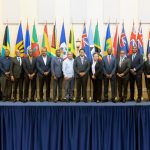
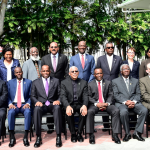
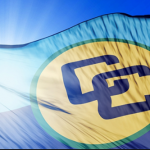


You must be logged in to post a comment Login